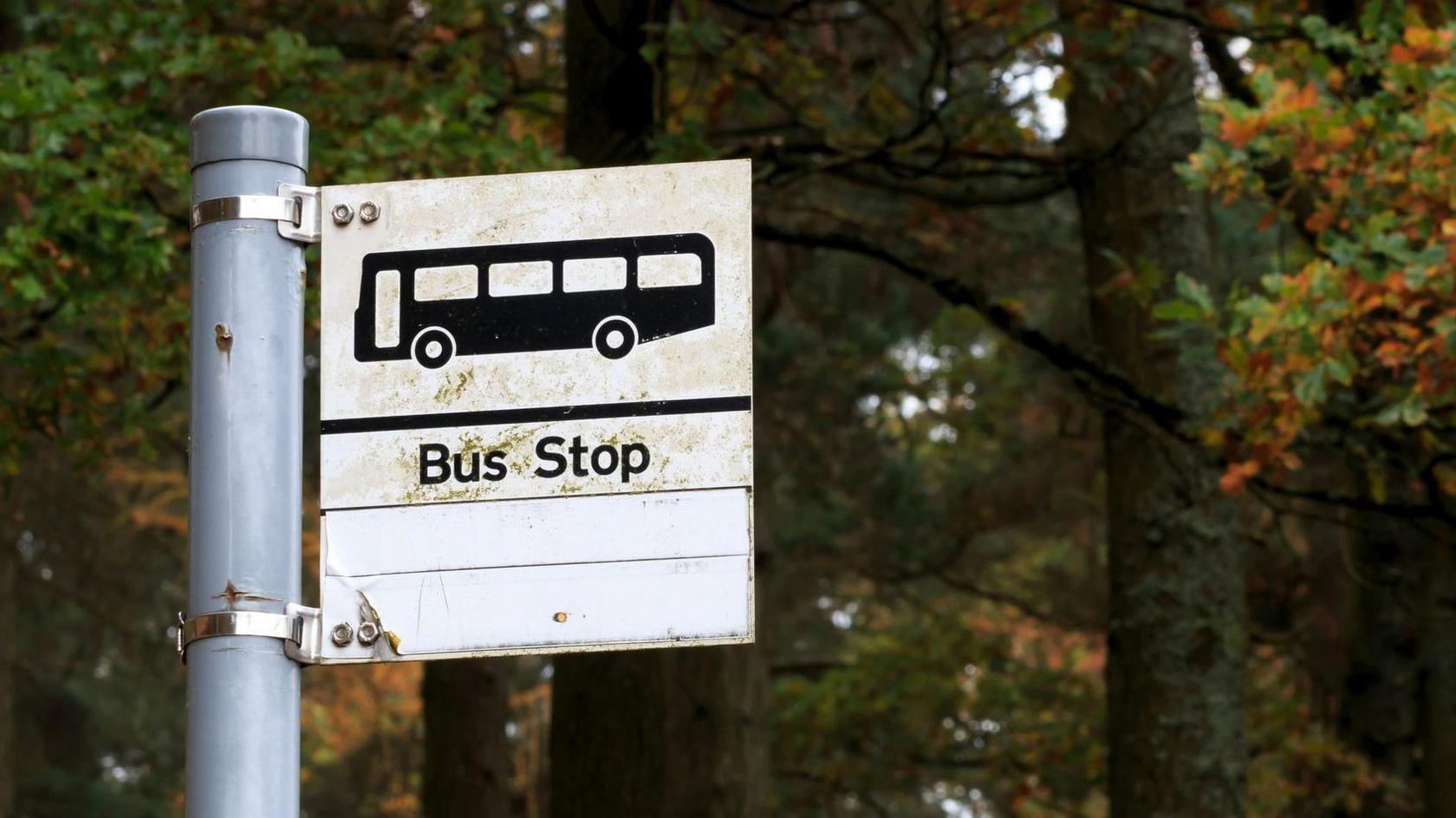Petitions protest against bus service changes

Communities in Dumfries and Galloway have raised concerns about changes that came into effect this month
- Published
Communities in Dumfries and Galloway have started petitions protesting against changes to their bus services.
More than 250 people so far have signed one opposing the merger of two services in Langholm.
Communities in Mid Galloway and Wigtown West have joined forces with a petition against changes to bus timetables and routes, which have left them with fewer bus runs.
The South West of Scotland Transport Partnership (SWestrans) said it was aware of the concerns.
Transport Scotland said it recognised the importance of buses to communities, and added that local authorities had a duty to identify where there was a social need for services.
A special meeting of Dumfries and Galloway Council was held on Monday to discuss residents' concerns.
Annandale East and Eskdale independent councillor Denis Male said he had received many complaints about the 120 and 124 bus services, which serve Langholm town centre and Langholm to Samye Ling.
He said the merger of services had caused "a lot of problems" within the communities.
Mid Galloway and Wigtown West councillor Katie Hagmann, who chaired the meeting, said the petitions showed the strength of feeling across Dumfries and Galloway about the state of bus services.
Councillors said a report was needed looking into the potential of a council-run bus network.
They also agreed that a public transport needs assessment should be carried out for all local areas affected by the withdrawal or reduction of commercial services since June.
More stories on Dumfries and Galloway buses
New bus timetable provides 'best possible service'
- Published25 July
Stagecoach to axe bus services across Dumfries and Galloway
- Published19 June
Stagecoach confirms bus depot closure plans
- Published26 June
SWestrans said it along with Dumfries and Galloway Council were committed to improving the bus network by listening to residents and working with operators.
A spokesperson said: "As part of the recent planned procurement exercise undertaken by SWestrans and the council, 45 long-term contracts were awarded to trusted local operators to deliver the region's subsidised bus network, which comprises most routes in the region.
"Although most services were retained, we understand that some of the changes that came into operation on 7 August have caused uncertainty and concern to affected residents."
SWestrans said the merging the 120 and 124 services and other changes were made due to a combination of lack of operator capacity and low passenger volumes.
The spoksperson added: "We are liaising with local community transport providers to explore what options are possible within the budget available and the capacity of the operators concerned."
The Scottish government said it had given local authorities new powers, including around the running of their own services.
A spokesperson said: "We encourage all local transport authorities to consider the full range of tools available to them, to ensure that everyone has accessible public transport regardless of where they are in Scotland."